African American cosmetology encompasses the cultural, historical, and social significance of beauty practices within the Black community, emphasizing unique hair and skin care traditions․ It highlights the resilience and creativity of African Americans in defining beauty on their own terms, often as a form of self-expression and empowerment;
1․1 Definition and Significance
African American cosmetology refers to the specialized practices and traditions surrounding hair, skin, and beauty care within the Black community․ Rooted in cultural heritage, it addresses the unique needs of African American textures, fostering self-expression and empowerment․ Historically, it has played a vital role in identity formation, resistance, and community building․ The significance lies in its ability to challenge Eurocentric beauty standards while celebrating Black aesthetics․ From hairstyles to skincare, African American cosmetology is a testament to resilience, creativity, and the enduring quest for beauty on one’s own terms․ It transcends aesthetics, serving as a powerful tool for cultural preservation and social change․
1․2 Historical Context
African American cosmetology has deep historical roots tied to resilience and cultural preservation․ Emerging in the late 19th and early 20th centuries, it addressed the unique needs of Black hair and skin, challenging Eurocentric beauty norms; Pioneers like Madame C․J․ Walker and Annie Turnbo Malone revolutionized the industry by creating products tailored for African American textures, empowering women economically and socially․ Beauty salons became cultural hubs, fostering community and political activism․ Historically, these spaces were not just for grooming but also for identity formation and resistance against societal oppression․ The legacy of African American cosmetology reflects a journey of self-definition, cultural pride, and the celebration of Black beauty in the face of systemic marginalization․
Historical Origins of African American Beauty Products
The African American beauty industry emerged in the late 19th century, with pioneers like Madame C․J․ Walker and Annie Turnbo Malone creating products for Black hair and skin․
2․1 Early Entrepreneurs: Madame C․J․ Walker and Annie Turnbo Malone
Madame C․J․ Walker and Annie Turnbo Malone were trailblazers in the African American beauty industry․ Madame C․J․ Walker, born Sarah Breedlove, revolutionized hair care for Black women in the early 1900s by developing shampoos, conditioners, and hair growth formulas․ Her empire became one of the most successful African American-owned businesses of the time․ Annie Turnbo Malone, another pioneer, founded the Poro Company, offering hair care products and training․ Both entrepreneurs empowered Black women by creating jobs and fostering economic independence․ Their innovations laid the foundation for the modern Black beauty industry, blending cultural pride with entrepreneurial excellence․ Their legacy continues to inspire future generations․
2․2 Development of the Black Beauty Industry
The Black beauty industry emerged in the late 19th and early 20th centuries, driven by the need for products tailored to African American hair and skin․ Entrepreneurs like Madame C․J․ Walker and Annie Turnbo Malone pioneered this movement, creating lines of hair care and beauty products․ Beauty salons and cosmetology schools proliferated, becoming hubs for community engagement and economic empowerment․ These institutions not only provided essential services but also served as spaces for political activism and cultural expression․ The industry grew rapidly, challenging Eurocentric beauty standards and fostering a sense of pride and identity within African American communities․ Its development was deeply intertwined with the fight for racial equality and self-determination․
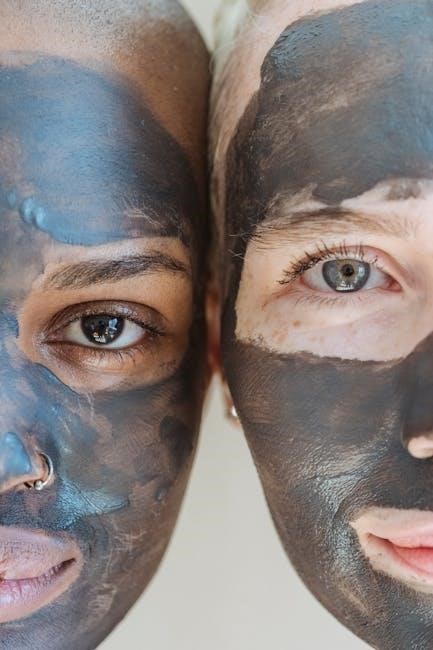
Evolution of Beauty Standards in African American Culture
African American beauty standards have evolved significantly, reflecting historical, social, and cultural shifts․ From embracing natural hair to challenging Eurocentric ideals, the journey highlights resilience and self-definition․
3․1 Historical Evolution of Beauty Standards
The historical evolution of beauty standards in African American culture reflects a journey of resilience and self-definition․ Rooted in African traditions, these standards were influenced by slavery, segregation, and societal norms that often devalued Black features․ In the late 19th and early 20th centuries, entrepreneurs like Madame C․J․ Walker and Annie Turnbo Malone revolutionized the industry by creating products for African American hair and skin, empowering individuals to embrace their natural beauty․ The civil rights movement further shifted perceptions, celebrating African American identity and challenging Eurocentric ideals․ Over time, beauty standards have evolved to embrace diversity, with the natural hair movement symbolizing a return to cultural roots and self-acceptance․
3․2 Contemporary Shifts in Beauty Ideals
Contemporary shifts in beauty ideals within African American culture reflect a growing embrace of diversity and inclusivity․ The natural hair movement has gained momentum, celebrating Black textures and challenging Eurocentric standards․ Social media platforms have amplified this shift, providing spaces for individuals to share their beauty journeys and redefine standards․ The beauty industry has responded by expanding product lines to cater to diverse hair types and skin tones․ However, despite progress, challenges remain, as societal pressures often still equate beauty with conformity․ This ongoing evolution highlights the dynamic nature of beauty ideals in African American culture, blending tradition with modernity and fostering self-acceptance․
3․3 The Impact of Media on Beauty Standards
Media has profoundly shaped beauty standards in African American culture, often perpetuating Eurocentric ideals while marginalizing Black features․ Historically, mainstream media overlooked African American beauty, reinforcing internalized racism and limiting self-perception․ However, the rise of social media and diverse representation has challenged these norms, promoting inclusivity․ Platforms like Instagram and YouTube have amplified Black voices, celebrating natural hair and diverse skin tones․ The natural hair movement, for instance, gained momentum through online communities, redefining beauty standards; Media’s evolving role reflects a shift toward embracing African American beauty, though challenges remain in achieving equitable representation and dismantling deeply ingrained biases in the beauty industry․
3․4 The Natural Hair Movement
The Natural Hair Movement emerged as a powerful response to decades of Eurocentric beauty standards, advocating for the acceptance and celebration of African American hair in its natural state․ It challenges societal norms that once deemed curly, kinky, and coily textures unprofessional or unattractive․ The movement gained momentum through social media, with platforms like Instagram and YouTube becoming spaces for sharing natural hair journeys, tips, and pride․ By embracing their natural hair, African Americans reclaim their cultural identity and reject harmful practices like chemical straightening․ This movement is not just about hair—it’s a symbol of self-love, empowerment, and resilience, fostering a broader acceptance of Black beauty in all its forms․
Hair Care in African American Cosmetology
African American hair care focuses on managing diverse textures, from tightly coiled to loose waves, emphasizing hydration, protection, and styling techniques like braiding and twisting․
4․1 Types of African American Hair Textures
African American hair textures vary widely, ranging from tightly coiled to loosely curled patterns․ These textures are categorized into types such as 4a, 4b, and 4c, representing tightly coiled hair, while 3a to 3c denote looser curls․ The unique structure of African American hair, often more elliptical or flattened, contributes to its distinct manageability and susceptibility to breakage․ Common challenges include dryness, tangling, and frizz, which require specialized care․ Understanding these textures is crucial for effective cosmetology practices, as they determine the best hairstyles, products, and treatments․ Each texture holds cultural significance, reflecting the diversity and richness of African American identity and heritage․
4․2 Common Hair Care Practices
African American hair care often involves specific practices to maintain health and manage unique textures․ Hydration is crucial, with deep conditioning treatments and leave-in moisturizers commonly used to combat dryness․ Protective styling, such as braids, twists, and extensions, is popular to minimize damage and promote growth․ Natural hair care regimens emphasize minimal heat use and avoidance of harsh chemicals․ Regular trimming and gentle detangling are also essential to prevent breakage․ Many individuals opt for sulfate-free products and natural oils like coconut or shea butter to nourish their hair․ These practices not only preserve hair health but also align with cultural preferences and the growing natural hair movement, fostering self-expression and confidence․
4․3 Cultural Significance of Hairstyles
Hair has long held profound cultural and symbolic meaning in African American communities, often serving as a reflection of identity, heritage, and resilience․ Hairstyles have historically been used to convey messages, signify status, and express creativity, rooted in African traditions․ During the Civil Rights Movement and Black Power era, natural hairstyles like afros became symbols of pride and defiance against societal beauty norms․ Today, hairstyles continue to embody self-expression and empowerment, with the natural hair movement fostering a renewed embrace of African textures․ Hair serves as a bridge between past and present, celebrating cultural richness and challenging Eurocentric beauty ideals․ It remains a vital aspect of African American identity and community building․
4․4 The Natural Hair Movement
The Natural Hair Movement has emerged as a powerful symbol of self-acceptance and empowerment for African Americans․ Rooted in the rejection of Eurocentric beauty standards, this movement celebrates natural textures and promotes self-love․ It challenges societal norms that once deemed African hair “unprofessional” or “unattractive․” By embracing natural hairstyles, individuals reclaim their cultural identity and reject chemical treatments often used to conform to mainstream ideals․ This movement has fostered a sense of community, with many sharing their journeys online and through events․ It has also inspired a demand for diverse beauty products catering to natural hair, further cementing its cultural and economic impact․ The movement continues to grow, becoming a beacon of pride and resilience․
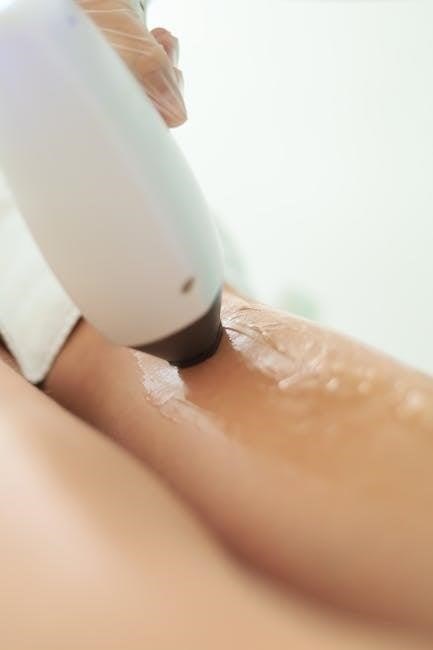
Skin Care in African American Cosmetology
African American skin care addresses unique concerns like hyperpigmentation, dryness, and eczema, requiring tailored products and routines․ Dermatologists play a crucial role in providing culturally sensitive care․
5․1 Common Skin Concerns
African American skin often faces unique challenges, including hyperpigmentation, dryness, and eczema․ These concerns stem from the skin’s natural moisture barrier and curly hair follicle structure․ Hyperpigmentation, a common issue, leads to dark spots and uneven tone․ Dryness can result from environmental factors and harsh products, exacerbating conditions like eczema․ Acne and ingrown hairs are also prevalent, especially due to curly hair textures․ Understanding these specific skin concerns is crucial for effective cosmetology practices, as they require tailored approaches to maintain healthy, radiant skin․ Addressing these issues ensures better skin health and boosts confidence for African American individuals․
5․2 Tailored Skin Care Products
African American skin care requires products formulated to address specific concerns such as hyperpigmentation, dryness, and sensitivity․ Ingredients like shea butter, coconut oil, and vitamin E are often emphasized for their moisturizing and nourishing properties․ Products with SPF are crucial to prevent further dark spot formation․ The rise of clean and natural beauty products has also catered to this demographic, offering sulfate-free and fragrance-free options to reduce irritation․ Additionally, serums and creams targeting melanin-rich skin help even tone and improve texture․ Dermatologists often recommend these tailored products to ensure they meet the unique needs of African American skin, promoting healthier and more radiant complexions․
5․3 The Role of Dermatologists
Dermatologists play a crucial role in addressing skin concerns specific to African Americans, such as hyperpigmentation, eczema, and psoriasis․ Their expertise is vital in diagnosing and managing conditions that disproportionately affect melanin-rich skin․ Historically, there has been a lack of representation in dermatology, leading to gaps in understanding African American skin care needs․ Dermatologists now emphasize the importance of cultural competence, offering tailored treatments and educating patients on proper skin care routines․ Their role extends to advocating for inclusive product formulations and raising awareness about conditions like keloid formation and dermatosis papulosa nigra․ By addressing these unique challenges, dermatologists help empower African Americans to achieve healthier, more radiant skin․
The Role of Beauty Salons and Cosmetology Schools
Beauty salons and cosmetology schools serve as economic hubs, fostering independence and cultural pride while providing education and skills vital to the African American beauty industry․
6․1 Community Hubs and Economic Empowerment
Beauty salons and cosmetology schools are more than just places for grooming; they are vibrant community hubs․ These spaces have historically served as centers for social interaction, fostering connections and a sense of belonging among African Americans․ Beyond their social role, they have been instrumental in economic empowerment․ By providing training and employment opportunities, they have enabled individuals to gain financial independence․ Many entrepreneurs, particularly women, have built successful careers and businesses through these institutions, contributing to the overall economic vitality of their communities․ This dual role underscores their significance as both cultural and economic pillars in African American society․
6․2 Political Activism and Beauty Salon Culture
African American beauty salons have long served as spaces for political activism, fostering a sense of community and resistance․ During the Civil Rights Movement, salons became hubs where leaders and activists could discuss strategies and organize efforts․ The intimate nature of these spaces allowed for open dialogue, creating a platform for empowerment․ Beauty salon culture also played a role in promoting unity, as they were places where individuals could assert their identity and challenge societal norms․ This intersection of beauty and politics highlights the broader cultural significance of salons as spaces for both personal care and collective action, deeply rooted in African American history and activism․
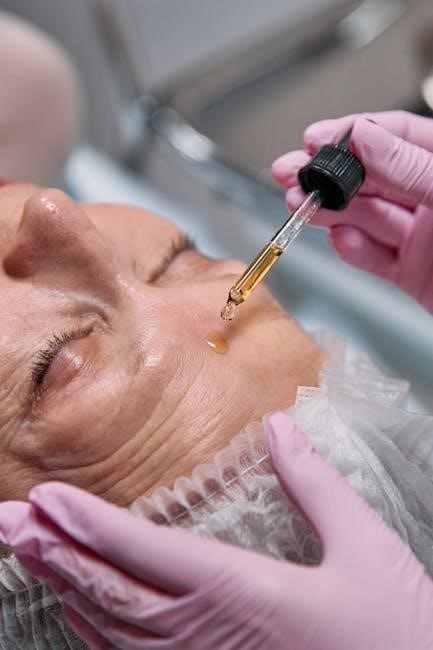
Impact of Beauty on Self-Perception and Empowerment
Beauty practices in African American culture foster self-confidence and challenge societal beauty norms, empowering individuals to embrace their identity and celebrate their unique heritage and appearance․
7․1 Psychological Effects of Beauty Standards
Beauty standards deeply impact African Americans’ mental health, often perpetuating internalized racism and self-esteem issues․ Historically, Eurocentric ideals have marginalized Black features, fostering feelings of inadequacy․ The pressure to conform can lead to psychological distress, as individuals struggle to reconcile their natural appearance with societal expectations․ Media representation plays a crucial role, often underrepresenting or misrepresenting Black beauty, further complicating self-perception․ However, the resurgence of the natural hair movement and increased visibility of diverse beauty ideals have empowered many to embrace their identity, challenging these harmful standards and fostering resilience and self-acceptance within the community․ This shift highlights the transformative power of redefined beauty norms․
7․2 Beauty as a Form of Self-Definition and Empowerment
Beauty practices in African American culture serve as a powerful tool for self-definition and empowerment, allowing individuals to reclaim and celebrate their identity․ Through hairstyles, skin care, and makeup, Black individuals express cultural pride and resilience․ The natural hair movement, for instance, has become a symbol of liberation, challenging Eurocentric beauty norms and embracing African heritage․ Beauty salons and schools have historically functioned as spaces for community building and economic empowerment, fostering a sense of autonomy and pride․ By redefining beauty on their own terms, African Americans assert their identity, challenge societal norms, and promote self-love, transforming beauty into a form of resistance and celebration․
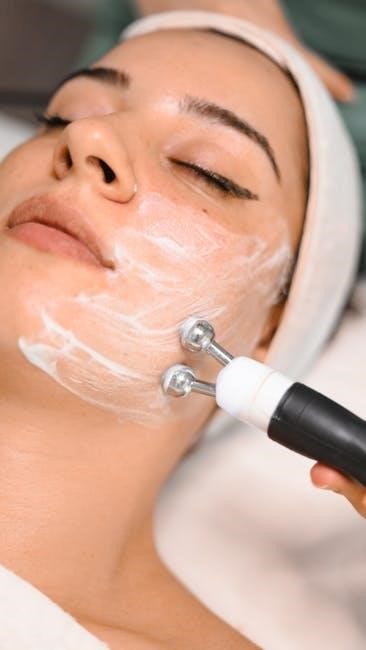
Legal and Ethical Considerations
African American cosmetology navigate cultural appropriation, trademark disputes, and ethical product sourcing․ Ensuring representation and fairness in beauty practices remains a critical legal and moral priority․
8․1 Cultural Appropriation in Beauty Practices
Cultural appropriation in African American beauty practices involves the adoption of Black hairstyles and cultural symbols without proper understanding or credit․ This issue has sparked widespread debate, particularly in the beauty industry, where Black innovations are often commercialized without benefiting the community․ Historically, traditional African hairstyles like braids and dreadlocks have been co-opted by mainstream culture, leading to accusations of cultural theft․ Many argue that such practices perpetuate racial inequality and erase the cultural significance of these traditions․ Legal battles and ethical discussions continue to arise, highlighting the need for greater awareness and respect for African American cultural contributions to beauty․
8․2 Ethical Issues in the Beauty Industry
Ethical concerns in the beauty industry often revolve around the exploitation of African American cultural practices and the lack of diversity in product development․ Historians like Blain Roberts highlight how beauty standards rooted in racial differences have led to systemic exclusion․ Additionally, the industry faces criticism for inadequate representation in leadership and product formulation, failing to address the unique needs of Black skin and hair․ Dermatologists and hairstylists play a crucial role in addressing these disparities, advocating for inclusive practices․ The ethical challenges also extend to the cultural commodification of African American hairstyles, raising questions about ownership and authenticity․ These issues underscore the need for greater accountability and equity in the beauty sector․
Case Studies
Case studies highlight pioneers like Madame C․J․ Walker and Annie Turnbo Malone, who revolutionized the Black beauty industry, and Alice Walker’s exploration of African American beauty ideals․
9․1 Successful African American Beauty Businesses
Madame C․J․ Walker and Annie Turnbo Malone pioneered the Black beauty industry, creating products tailored to African American hair and skin․ Their businesses empowered Black women economically and culturally․ Companies like Fenty Beauty, founded by Rihanna, have redefined inclusivity, offering diverse shade ranges․ These enterprises highlight resilience and innovation, challenging traditional beauty norms․ They not only revolutionized the market but also fostered pride and self-expression within the African American community․ Their success underscores the importance of representation and cultural authenticity in the beauty industry․
9․2 Alice Walker’s Exploration of African American Beauty
Alice Walker, a celebrated African American author, has explored themes of beauty, identity, and empowerment in her work․ Her writing often challenges Eurocentric beauty standards, emphasizing the cultural significance of natural hair and African features․ Walker’s exploration highlights the historical and psychological impact of beauty norms on Black women, advocating for self-acceptance and pride․ Her work, such as in In Search of Our Mothers’ Gardens, reflects the journey of reclaiming beauty as a form of resistance and self-definition․ By celebrating African American aesthetics, Walker contributes to a broader cultural shift, fostering empowerment and challenging societal beauty ideals․
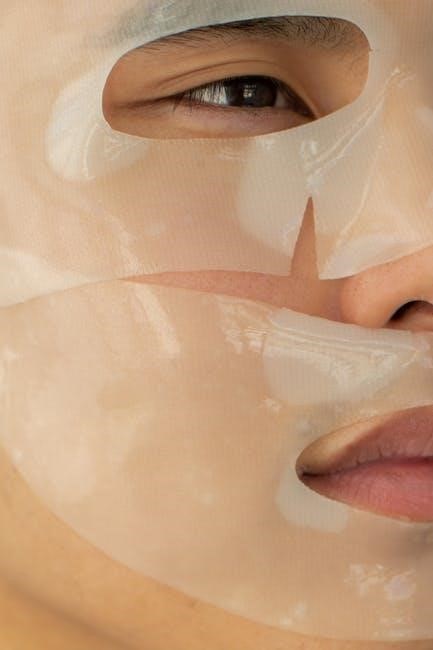
Future Trends in African American Cosmetology
Future trends include a focus on sustainability, digital innovation, and inclusivity in beauty products․ Online platforms and social media will drive product discovery and education, empowering consumers and creators․
10․1 Sustainability in Beauty Products
Sustainability is becoming a key focus in African American cosmetology, with brands prioritizing eco-friendly practices․ Natural ingredients, recyclable packaging, and ethical sourcing are gaining prominence, reflecting a broader cultural shift toward environmental consciousness․ Digital platforms are enabling consumers to discover sustainable products, fostering transparency and education․ This trend aligns with the community’s historical emphasis on self-care and empowerment, as sustainable beauty practices promote both personal and planetary well-being․ By embracing these values, African American beauty brands are setting new standards for inclusivity and responsibility, ensuring that future generations can thrive in harmony with the environment while celebrating their cultural identity․
10;2 Digital Advancements and Online Platforms
Digital innovation is revolutionizing African American cosmetology, with online platforms enabling greater access to products, tutorials, and communities․ Social media and e-commerce sites are empowering Black-owned businesses to reach global audiences, fostering economic growth․ Virtual consultations and augmented reality tools are enhancing consumer experiences, allowing for personalized recommendations․ These digital advancements not only promote inclusivity but also amplify cultural pride, ensuring that African American beauty standards are represented and celebrated worldwide․ By leveraging technology, the industry is democratizing beauty, making it more accessible and diverse than ever before while preserving the rich cultural heritage of African American cosmetology traditions․
African American cosmetology is a celebration of heritage and identity, blending tradition with innovation to empower and redefine beauty standards, fostering cultural pride and self-expression․
11․1 Summary of Key Points
African American cosmetology reflects a rich cultural journey, blending history, identity, and empowerment․ It highlights pioneers like Madame C․J․ Walker and the evolution of beauty standards, challenging Eurocentric norms․ The natural hair movement and tailored skin care practices emphasize self-acceptance and pride․ Beauty salons and schools have served as community hubs, fostering economic growth and political activism․ Psychological impacts of beauty standards and the role of media underscore the struggle for representation․ Ultimately, African American cosmetology is a celebration of resilience, innovation, and the redefinition of beauty on Black terms, contributing to cultural pride and self-expression across generations․
11․2 Reflection on Cultural Significance
African American cosmetology holds profound cultural significance, reflecting the community’s journey toward self-definition and empowerment․ It transcends beauty practices, embodying resilience, creativity, and the celebration of Black identity․ The industry, shaped by pioneers like Madame C․J․ Walker, has empowered individuals and fostered economic growth․ Beauty salons and schools have historically served as community hubs, blending social interaction with political activism․ The natural hair movement symbolizes a reclaiming of African heritage, challenging Eurocentric beauty norms․ Media representation has evolved, promoting inclusivity and diverse beauty ideals․ Ultimately, African American cosmetology is a testament to cultural pride, self-love, and the transformative power of beauty as a form of resistance and celebration․